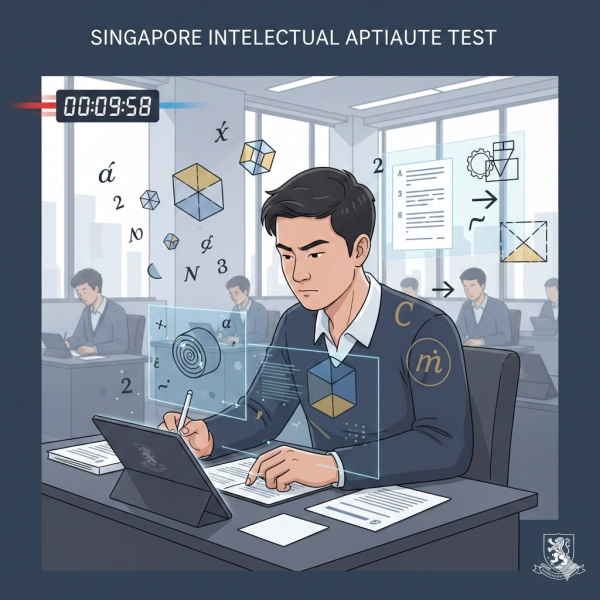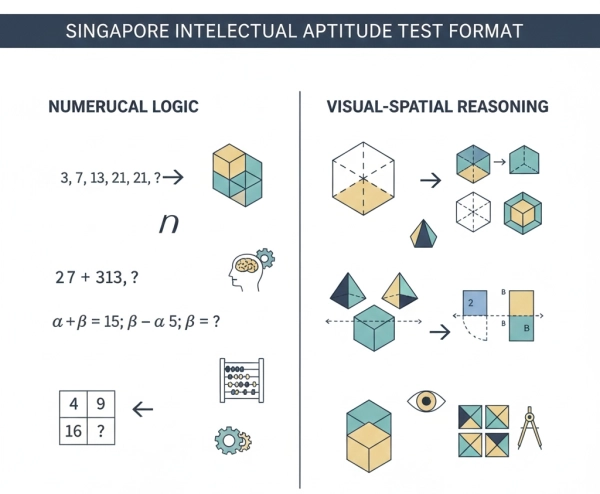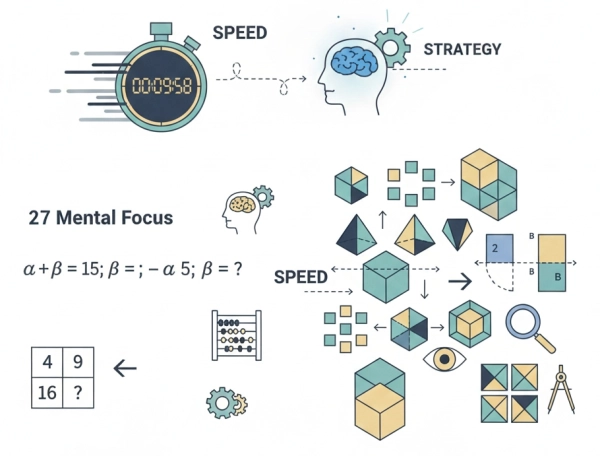The Singapore University IQ Test isn’t your average online brain teaser. This 20-minute, 32-question test is a high-speed challenge built to simulate the mental pressure of real academic and professional situations. Trusted by top-tier institutions in Singapore, it evaluates not just intelligence—but how well your brain functions under fire. For context on how this exam compares to similar assessments, you can explore the Singapore IQ Test vs other global intelligence tests.
If you're applying to elite programs or just aiming to prove your cognitive strength, here's how to train smart and beat the clock.

Understand the Test’s Unique Format
Unlike standard IQ tests, this one combines numerical reasoning and visual logic—in a race against time. If you want a broader foundation, you may want to review the complete guide to IQ before diving into advanced preparation.
Total Questions: 32
Time Limit: 20 minutes
Average Time Per Question: ~38 seconds
Core Focus Areas:
- Numerical Logic: Mental math, number sequences, deduction
- Visual-Spatial Reasoning: Symmetry, abstract patterns, spatial tracking
Bottom Line: You’ll need both analytical and spatial abilities to perform well. A helpful comparison on these skills can be found in verbal vs non-verbal intelligence tests.

Train to Think Fast, Not Just Smart
Many candidates underestimate the effect of time pressure. Even high-IQ individuals can underperform if they’re not used to thinking fast—a concept closely linked to cognitive flexibility.
Training Suggestions:
- Simulate real test sessions: 20 minutes, no pausing, 32 questions
- Use speed-focused brain apps: Try Elevate, Peak, or Brainwell
- Batch drills: 10–15 question sprints under timed conditions
You’re not just solving puzzles—you’re doing it faster than your instincts are comfortable with.
Balance Both Skill Sets – Visual and Numerical
This test penalizes lopsided strengths.
- If you're math-heavy: Practice spatial puzzles, folding patterns, abstract visual relationships.
- If you're more visual: Strengthen number sequences, pattern logic, and mental calculations.
Pro tip: Alternate your practice days to keep both sides sharp. For deeper insight into how these abilities differ, check out the article on numerical vs visual reasoning in intelligence testing.
Build Mental Endurance
Most people burn out around question 20. To stay sharp till the end:
- Practice under fatigue: Do logic puzzles after mentally demanding tasks.
- Try cognitive sprints (25–30 minutes of focused work with no distractions).
- Hydrate and manage stress levels to prevent brain fog during practice sessions.
Improving stamina often overlaps with strategies used in mental clarity and focus training.
Learn to Prioritize – Don’t Chase Every Question
This isn’t a test where you can dwell.
Strategy:
- Spend no more than 15 seconds per question on the first pass.
- Flag and skip anything unclear—return if time allows.
- Prioritize easy/medium wins over time-draining “brain-buster” questions.
Good test-takers know when to cut their losses. This mirrors the approach used in recruitment IQ testing, where time pressure is equally intense.
Practice with the Right Tools
Generic online quizzes won’t cut it. Choose high-quality resources that mimic the test’s speed, logic types, and visuals.
- Official simulations from CheckIQFree.com
- Advanced IQ prep books (The Ultimate IQ Test Book by Ken Russell & Philip Carter)
- Specialized apps for high-range IQ simulations.
If you're aiming for top-tier performance, you can also explore high-range IQ tests to push beyond standard difficulty levels.
Optimize Brain Function for Test Day
The night before matters more than you think.
- Get at least 7 hours of sleep
- Eat protein + slow carbs (e.g., eggs and oats)
- Avoid multitasking the morning of
- Optional: Light warm-up with 3–5 visual puzzles
These habits align with common advice for improving cognitive skills.

Conclusion: Your Strategy Is Just as Important as Your Score
The Singapore University IQ Test rewards those who can think clearly under pressure. It’s not only about being smart—it’s about being smart with a stopwatch ticking.
Whether you're preparing for university entrance, elite internships, or simply testing your mental agility, your success comes down to this:
Train fast. Think sharp. Stay focused.
If you want a structured path forward, consider reviewing the official guide on how to prepare for the Singapore University IQ Test.

Comments
Share Your Thoughts